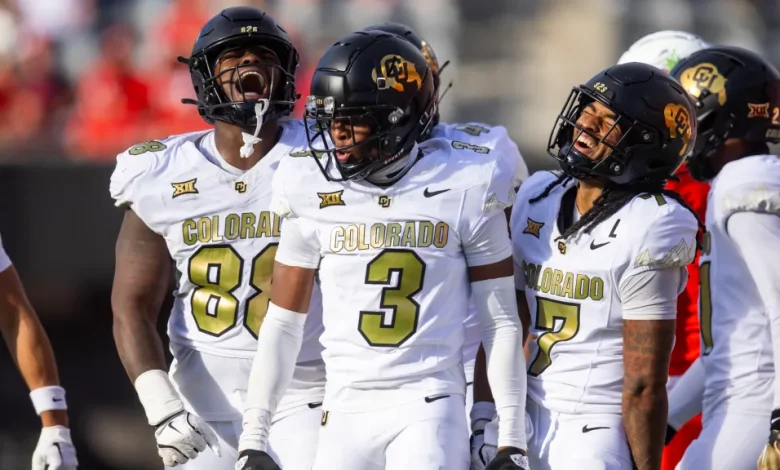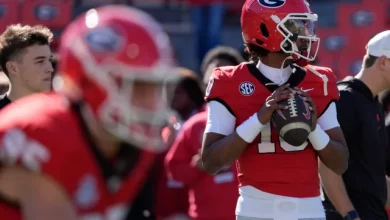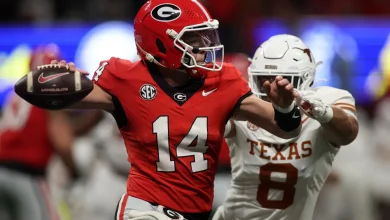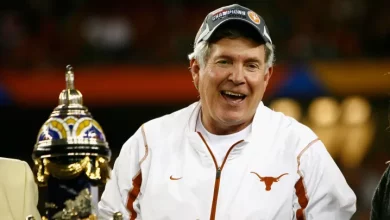Colorado football achieves the greatest GPA in the history of the program.

In the world of college football, athletic success is often measured by on-field accomplishments—championships, bowl game appearances, and individual awards. However, the true essence of a student-athlete lies not just in their physical prowess but also in their ability to succeed in the classroom. Recently, the University of Colorado Buffaloes football team made history by achieving the greatest GPA in the history of the program, an accomplishment that speaks volumes about the changing culture in college athletics. This achievement highlights the importance of balancing academic excellence with athletic competition, proving that student-athletes can excel both on the field and in the classroom.
For head coach Deion Sanders, this achievement is not just about individual success but about transforming the entire culture of the program. Deion has long been known for his commitment to developing not only exceptional football players but also responsible and educated young men. His approach to coaching goes beyond X’s and O’s; it’s about shaping well-rounded individuals who can thrive in all aspects of life. Under his leadership, the Colorado Buffaloes football team has embraced a new ethos—one where academics are as crucial as athletics, and where each student-athlete is held accountable for their success both in the classroom and on the field.
The Foundation: Deion Sanders’ Coaching Philosophy
Deion Sanders, a Hall of Fame football player and now head coach, brings a unique perspective to the world of college football. His coaching philosophy is centered on accountability, discipline, and responsibility, and he firmly believes that football should not only prepare athletes for success on the field but also equip them for life after football. From his time at Jackson State University to his current role at Colorado, Deion has made it clear that his expectations extend far beyond athletic achievements.
When Deion took over as head coach at Colorado, the program was in a rebuilding phase. The team had struggled for several years, and the culture around the football program needed a drastic change. Deion’s first order of business wasn’t just to overhaul the football team’s tactics but also to shift the mindset of his players. Under Deion’s leadership, academic excellence became a top priority. He emphasized that being a student-athlete means excelling in both academics and athletics. His messaging resonated with the players, many of whom were eager to make a fresh start and prove that they could do more than just play football.
Deion’s efforts to improve the team’s GPA didn’t happen overnight. It required a fundamental shift in the way the athletes approached their academic responsibilities. He established clear academic expectations and worked closely with the players to ensure that they were setting goals for their grades just as they set goals for their performances on the field. The coaching staff implemented study halls, mandatory academic meetings, and additional resources for players who were struggling academically. The message was clear: success in the classroom was as important as success in the game.
The Role of Support Staff and Academic Advisors
While Deion Sanders played a pivotal role in the cultural shift, the achievement of the greatest GPA in program history wouldn’t have been possible without the unwavering support of the university’s academic advisors, tutors, and other support staff. The football team’s academic success can be attributed to the collaboration between the coaching staff and the university’s academic departments. Together, they created an environment where student-athletes had access to the resources they needed to thrive academically.
At the heart of this effort were the academic advisors who worked closely with the football team. These advisors developed individualized academic plans for each player, ensuring they were on track to meet graduation requirements while also balancing the demands of their football schedule. The academic staff also set up study groups, provided tutoring services, and ensured that players attended all of their classes regularly. The message from the academic staff was consistent with Deion’s coaching philosophy—student-athletes must prioritize education, and the support staff would do everything in their power to help them succeed.
The addition of tutors and the implementation of mandatory study halls further contributed to the improvement in the team’s GPA. Tutors were available to help players understand difficult coursework, while study halls provided a quiet, focused environment where players could complete their assignments. This initiative made it clear that the university valued both the athletic and academic development of its student-athletes, reinforcing the idea that being a successful football player and a successful student were not mutually exclusive.
The Role of Players: Commitment to Academic Excellence
While the coaching staff and support staff provided the structure and resources, the real credit for the achievement of the highest GPA in program history goes to the players themselves. The football players at Colorado, under Deion Sanders’ leadership, took it upon themselves to embrace their academic responsibilities. For many players, college football is a stepping stone to professional opportunities, but the reality is that only a small percentage of players will go on to play in the NFL or other professional leagues. Therefore, academics must be a top priority for every student-athlete.
The players’ commitment to academic excellence began with a shift in mindset. Many of the players had come to college with the singular focus of excelling on the field, and academics often took a backseat. However, under Deion’s leadership, they began to see the importance of doing well in the classroom not only for their futures but also for their overall development. Shifting this mindset was no small task, but the players bought into the idea that they could be great athletes and great students.
The improvement in GPA wasn’t just about taking easier courses or simply showing up to class. It was about developing time management skills, prioritizing assignments, and learning how to balance the demands of being a student-athlete. For some players, this meant adjusting their habits and learning how to study effectively. For others, it meant seeking help when they were struggling with their coursework or asking questions in class to ensure they fully understood the material.
One of the key aspects of Deion Sanders’ coaching style is his insistence on accountability. He holds his players to high standards and expects them to take ownership of their education. This mentality helped the players understand that their success in the classroom was ultimately in their hands. When they saw the results of their hard work, including achieving the highest GPA in program history, they realized the value of academic success and how it contributed to their overall development as student-athletes.
The Historical Achievement: Breaking Records
Achieving the greatest GPA in program history is no small feat, particularly for a team as high-profile as the Colorado Buffaloes. College football programs are often known for their rigorous athletic schedules, which can make it difficult for student-athletes to focus on their academic responsibilities. However, the Buffaloes’ football team proved that it was possible to excel in both areas.
The historic GPA achievement was a testament to the players’ dedication and the coaching staff’s commitment to creating a well-rounded program. It marked a turning point for the Colorado football team, as it demonstrated that the program was about more than just winning football games—it was about developing well-rounded individuals who would succeed in life, regardless of whether they went on to play professional football.
This achievement didn’t go unnoticed. The university, the football program, and Deion Sanders received praise from across the college sports community for their efforts to promote academic success. Many schools have struggled to balance athletics and academics, with football players sometimes facing criticism for neglecting their studies. But Colorado’s football team proved that it was possible to change the narrative and achieve success in both areas. This achievement also serves as a model for other college football programs, showing that with the right leadership and support, it is possible to achieve greatness both on and off the field.
The Broader Implications: A Cultural Shift in College Athletics
The success of the Colorado football team in achieving the greatest GPA in program history is indicative of a broader cultural shift in college athletics. More and more, there is an emphasis on the academic success of student-athletes, and schools across the country are investing in resources to help their athletes succeed in the classroom. Deion Sanders’ approach to coaching reflects this shift, and his commitment to academic excellence is something that will continue to inspire change in the college football landscape.
At its core, this achievement shows that college football programs can produce both top-tier athletes and successful students. With the right resources, mindset, and leadership, student-athletes can excel in both areas, and their success in the classroom can be just as celebrated as their success on the field.
A Legacy of Excellence
The Colorado Buffaloes football team’s achievement of the greatest GPA in the history of the program is a testament to the hard work, dedication, and commitment of the players, coaching staff, and support staff. Under the leadership of Deion Sanders, the program has embraced a culture of academic excellence, proving that student-athletes can be successful both on the field and in the classroom. This historic achievement not only reflects the progress made by the Colorado football program but also sets a new standard for excellence in college athletics, where success is measured not only by touchdowns and championships but by the intellectual growth and development of young athletes.









